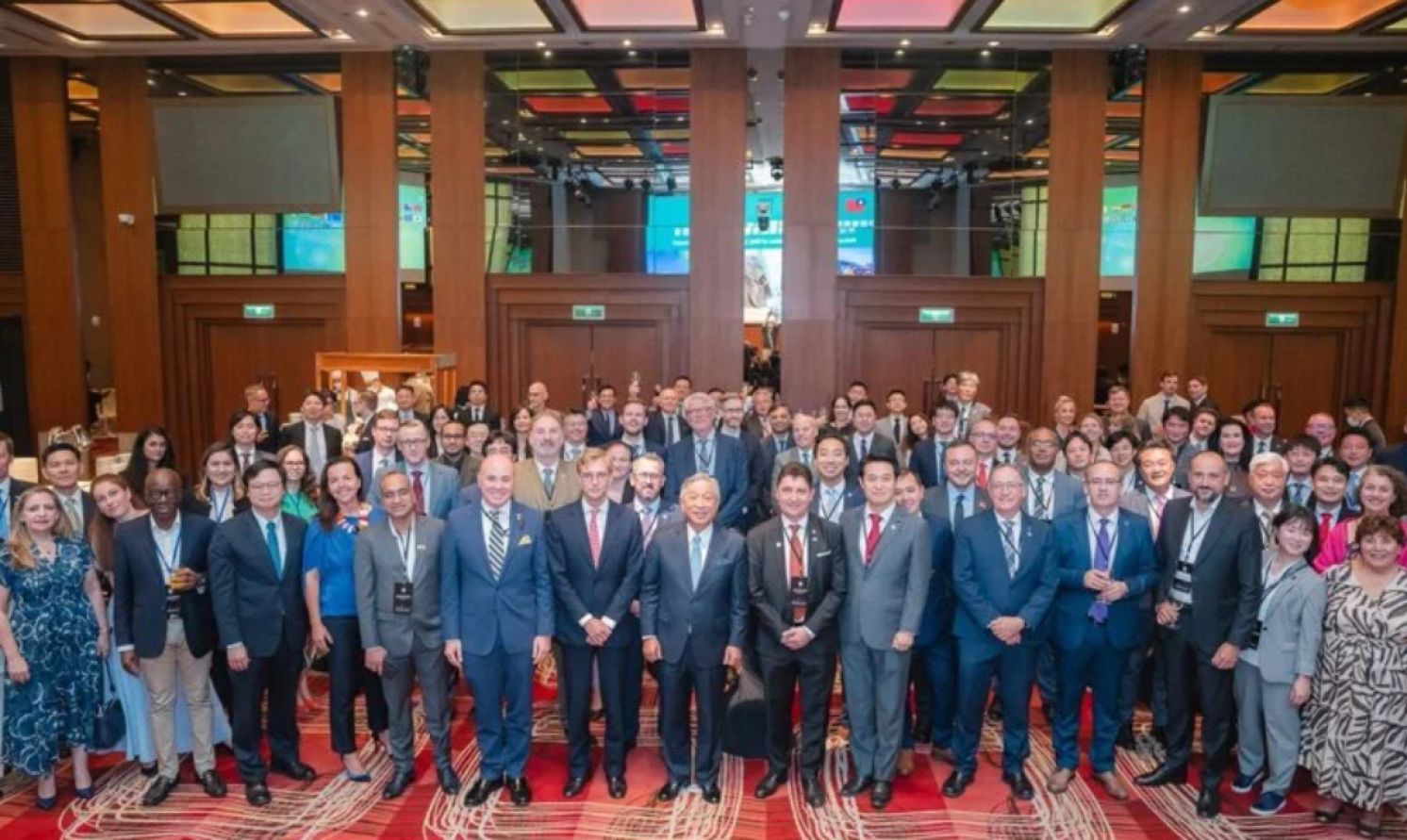
Anti-China Summit Further Isolates Taiwan
China Times Editorial, July 31, 2024
Through a perfect script paired with a satisfying ending, the 2024 summit of the Inter-Parliamentary Alliance on China (IPAC), held for the first time in Taipei, was staged by the Democratic Progressive Party (DPP) administration, with foreign lawmakers successfully putting on an anti-China performance. However, this self-gratifying diplomatic event only serves to preach to the choir and is unable to help expand Taiwan's international space. Instead, it highlights the increasingly extreme and self-marginalizing path of Taiwan's diplomacy.
Founded in 2020, the IPAC sponsored its fourth annual summit in Taipei on July 30, with a total of 49 parliamentarians and politicians from 23 countries and the European Parliament attended the event. Although the DPP administration swaggered that it was the largest multinational legislative delegation ever to visit Taiwan as a significant diplomatic achievement, the extreme anti-China stance of IPAC and the timing of the summit, which is out of tune with the current international political situation, raise questions about its substantive significance.
IPAC's main goal is to rally certain countries to jointly address the threat posed by China's rise to the international order and human rights protection, emphasizing that it is the most important international organization in the West supporting a single country, Taiwan. Although Taiwan was not an IPAC member before this annual meeting, "Taiwan Foundation for Democracy (TFD)," solely funded by the Ministry of Foreign Affairs, has been IPAC's top partner, essentially acting as a "behind-the-scenes financier." Additionally, the U.S. government founded "National Endowment for Democracy (NED)" is also a major partner of IPAC. Without membership, Taiwan's continuous funding of IPAC has caused speculations. This year, Taiwan went further by organizing the costly summit, themed "Peace and Stability in the Taiwan Strait," which invited President Lai Ching-te to speak in the specially created "Taiwan Lecture", setting an arena for his foreign-backed resist-China policy.
The DPP claimed that, due to the refusal of the opposition Kuomintang (KMT) to participate, Taiwan was unable to meet the requirement for IPAC membership. The KMT’s decline to join an extremely anti-China organization is understandable, given the party’s advocacy of cordial cross-strait relations,. Subsequently, IPAC showed a high level of flexibility by proactively amending its membership requirements so that the agreement of a second party would suffice. With the participation of the Taiwan People's Party (TPP), IPAC Executive Director Luke de Pulfo announced at the summit that Taiwan, Colombia, and five other countries were officially accepted as IPAC members. The IPAC official website was promptly updated to reflect the expansion to 40 member countries across five continents. IPAC's adaptability for a harmonious atmosphere between the guests and the host was indeed flabbergasting.
In his speech "Taiwan's Global Vision" at the IPAC summit, President Lai scrupulously avoided sensitive topics such as the "Two State Theory," sovereignty, national identity, and Taiwan independence. Instead, he focused on his "Four Pillars of Peace Action Plan," accusing mainland China of misinterpreting United Nations Resolution 2758 and improperly linking it with the so called "One China Principle" to restrict Taiwan's international participation and create a legal basis for China's military invasion against Taiwan. Throughout his speech, President Lai referred only to Taiwan and China, whereas Taiwan is listed as "Republic of China (Taiwan) " on IPAC’s official website.
Bringing up UN Resolution 2758 again is nothing new. While Chair Laura Rosenberger of the American Institute in Taiwan (AIT) and Deputy Assistant Secretary of State Mark Lambert did indeed challenge the legal validity of Resolution 2758 in April this year before the World Health Assembly (WHA), the United States has reaffirmed the “One China” policy and refused to propose official support for Taiwan's admission to the WHO. Given the current international reality where China has diplomatic relations with 183 countries and Taiwan only has 12 allies, President Lai's mention of the 2758 controversy will only cause Taiwan to fall in a predicament.
The biggest drawback in President Lai’s speech was citing the "NATO Summit" joint declaration, accusing China as a "key supporter" of Russia in the Russia-Ukraine war. With "strike at anything Chinese" and complete alignment with the United States mentality, the DPP administration has misjudged and even misunderstood the international situation, ignoring the shifting landscape of international political dynamics. Recently, Ukrainian Foreign Minister Dmytro Kuleba visited China, seeking China's mediation for a ceasefire, and he expressed Ukraine's support for China's stance on the Taiwan issue, stating that Ukraine will continue to adhere to the One China principle. This demonstrates the DPP's diplomatic efforts with Ukraine have utterly failed.
Prime Minister Giorgia Meloni of Italy also visited China at the end of July, hoping to restore bilateral cooperation and start a new chapter in Sino-Italian relations. Both Ukraine and Italy are members of IPAC, indicating that IPAC's influence is limited and cannot reverse the trend of China playing an increasingly important role in international politics.
A survey by RAND Corporation shows that if a war breaks out in the Taiwan Strait, American allies Japan, Australia, the United Kingdom, and Canada may offer political and diplomatic support but are generally not expected to commit military forces. President Lai has vowed to promote value-based diplomacy, standing shoulder to shoulder with global democratic nations to uphold the “democratic umbrella.” However, his radical anti-China and Sino-phobic ideology has caused internal division, escalating cross-strait hostility and deviating from international trends. President Lai's course has resulted in Taiwan becoming more isolated and marginalized, only finding solace with like-minded IPAC members
From: https://www.chinatimes.com/opinion/20240731004331-262101?chdtv